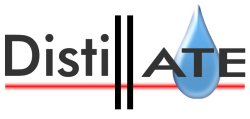


|

|
|
|||||||||
|
|||||||||
Project A Organisational Behaviour and Barriers
Project A produces a conceptual map of the problems and issues affecting the delivery of integrated and sustainable transport and land use solutions and provides the central integrative core of the whole research project. The research is divided into three phases: A1 - questionnaire to local transport planners on barriers to the delivery of sustainable transport solutions (2004) A2 - interviews with local transport planners and their local counterparts in public health, environmental strategy, land-use planning, and local authority corporate policy units on the barriers to cross-cutting sustainable transport solutions and methods of cross-sector working (2006) A3 - repeat questionnaire survey of local transport planners to revisit the barriers as experienced by local authority officers (2007) Download A3 Questionnaire SurveyFindings to dateThe results so far show that there are organisational, technical, and externally-driven barriers getting in the way of local authorities' abilities to deliver joined-up, integrated, and sustainable transport solutions. Many of these relate to the scope of other projects in the DISTILLATE work programme: Project A1 found that funding, modelling, monitoring & evaluation, strategy option generation, and strategic appraisal were the most difficult stages for local authority officers in policy delivery. It also identified a number of intra-organisational barriers between different departments within authorities; these included: " time and resource pressures " different timing of writing plans " divisions in responsibility " differing stakeholder procedures As a result of these and other barriers (as reported in the A1 report), the transport solutions that had the most serious implementation difficulties were demand management and land-use measures, and local public transport and fares. Public transport operators (rail and buses) were in many cases beyond the strategic control of the Local Transport Plan (LTP), and public willingness to accept restraint-based measures (such as charging for parking and the use of roads) was perceived to be low. The second survey of a number of local authority services re-emphasised these barriers. The following of ten interdependent themes were found to be forestalling local authorities' progress towards the implementation of more sustainable urban transport systems: 1. Societal constraints on the development of 'sustainable' strategies 2. Strength of focus on narrow national transport priorities 3. National Government unwillingness to use its own executive actions to support transport policies 4. Lack of local control over the implementation and operation of schemes 5. Funding for sustainable urban transport solutions 6. Complexities of organisational collaboration in the process of transport planning 7. Analytical capabilities and technical decision-making skills 8. Physical characteristics of local areas 9. Professional mindsets 10. Politics There are also specific barriers which affect other sectors' abilities to engage in policy formulation and the implementation of transport schemes at the local level. These are (as further reported in the A2 report): " High levels of funding uncertainty " Political influences adversely affecting cross-sector policy integration " Territorial and/or temporal mismatches between service delivery activities across different sectors " Organisational constraints (time, resources, leadership, interests, structures and systems) " Broken links between the '4 Ps': Priorities, policies, principles, and philosophies " Technical capabilities of tools and officers " Impact of direction and decisions of central government (vertical/diagonal integration) " Clarity and consistency of communication between sectors (horizontal interaction) Further synthesis and interpretation of research findings (including a visual map of these concepts, problems and issues) will be reported in the remaining deliverable (A3), and final Project A report (A4), expected in March 2008. Project Manager: Professor Angela Hull, Heriot Watt University Email: a.d.hull@hw.ac.uk |
|||||||||
|